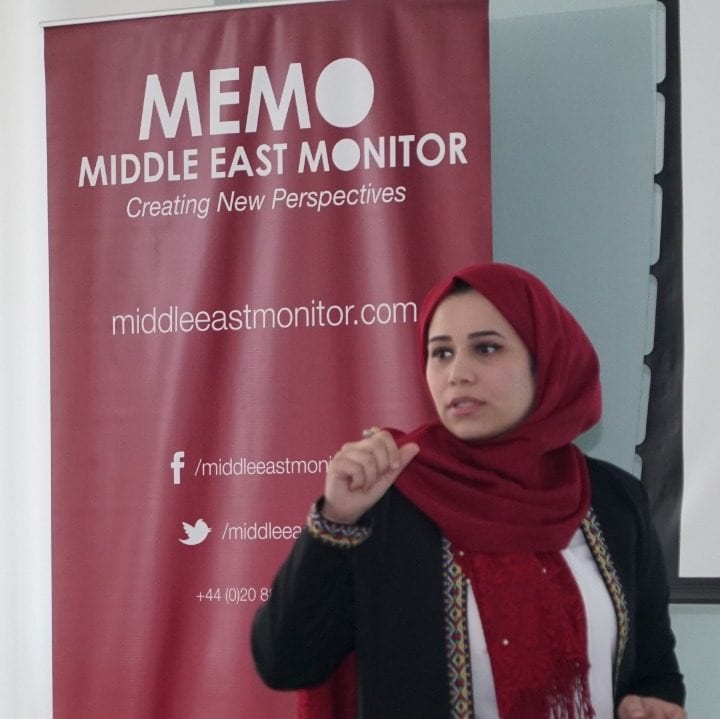Palestinian businessman Talal Abu Ghazaleh once said, “I was forced to succeed, I had no other choice.” When I heard this on a TV programme I stopped in my tracks. His words summarise the distinct approach of the Palestinian people, among the most educated identifiable group of people in the world. Despite everything that is being done to them, and happening around them — Israel’s occupation and military incursions; the Covid-19 pandemic; economic meltdown — they still manage to succeed. Amidst all of this, Palestinians in the occupied West Bank, East Jerusalem and the Gaza Strip have just celebrated this year’s high school matriculation exam results, and some of them are spectacular.
As usual, the Gaza Strip is unpredictable and a special case in itself. It has been devastated by an Israeli-led blockade since 2007, and is one of the most densely-populated places in the world, and one of the poorest. Hundreds of thousands of people live in ramshackle refugee camps and bombed-out buildings. With simple and limited capabilities,the Palestinians in Gaza prove to the whole world that it is impossible to be broken despite all the obstacles they face.

Shams celebrating her exam results with her family in Khan Younis, Gaza on 11 July 2020 [Hasan Eslayeh]
READ: 4,000 lost their jobs in Gaza during COVID-19
Coupled with the personal circumstances of students like Shams Abuamra, we have to consider that the education sector in the Gaza Strip is in crisis. The learning environment and resources available are difficult, to say the least; the deteriorating economic situation has made sure of that. It has a major impact on the lives of students and their teachers.
Moreover, electricity is only available for a few hours a day in the coastal territory. This means that Shams and other students have to cram a lot of study into those few hours. Their results send a strong message to the Israeli occupation authorities that despite everything it does to try to stop them, they are determined to do well.
In Gaza, Palestinian students don’t have the luxury of saying that they don’t need academic success. However, in some cases, they have no choice about what, when and how they study. Shaymaa Abulhussein, for example, is from the Rafah Governorate in the south of the Gaza Strip. Shaymaa is blind but still achieved a mark of 93.3 per cent in her Tawjehi exams. She was determined that her blindness would not put her at a disadvantage. There are no high schools for the visually impaired after the 11th grade in Gaza, so Shaymaa had to study alongside sighted students, which was stressful and far from easy. Books had to be copied and printed in Braille, which took hours and hours.
READ: Gaza has few lambs heading to the slaughter this Eid
According to official statistics, there are more than 93,000 disabled people in the occupied West Bank and Gaza Strip, around 47,000 of whom are in Gaza, just over 2.5 per cent of the population. Most blind or visually impaired people receive no support from NGOs dedicated to helping the blind; again, the poor economic situation has an impact on this. Nevertheless, every year students with visual impairments get high marks in the Tawjehi exams.
One Palestinian student in the Gaza Strip received the news that her father had been killed by an Israeli soldier during the Great March of Return protests while she was sitting her Tawjehi exams. Qmar Alghlban insisted on finishing the papers before going to her father’s grave. She would, of course, have preferred to share her results with him, but like so many other Palestinians this was not possible due to the consquences of the Israeli occupation. And like so many others, she is determined to succeed in life safe in the knowledge that her father would have been immensely proud of her achievements.
I know from personal experience exactly how these young Palestinians in the Gaza Strip feel, because that is where I was born and raised. It is where I studied and work. It is my home.
In the first years of the Israeli-led blockade, I also studied and got 94.9 per cent in the Tawjehi exams. Success was not an option, but a necessity. I had to be successful because I had no other choice. When we have a good education behind us we can develop and move forward. Everything we do sends a message to the world that we are alive and there is still a part of Palestine called Gaza; that Israeli oppression hasn’t been able to finish us off. Success at school and then university — such matriculation results ensure our place in Higher Education — is our gateway to the world, which we all plan on seeing sooner or later, at the very least to present a true picture of what is happening to us and our families and friends.
Ever since I was born, the Gaza Strip has been at the centre of some incredible events with a global impact. The story of Gaza — a story that my family, my friends and I live day after day — is one of struggle against the odds and significant achievements despite those odds. “Life in Gaza is like a pressure cooker,” a European diplomat told the Washington Report in October 2015.
That diplomat was right, but could have added that the Palestinians in Gaza do not have the word “impossible” in their dictionary .With persistence and determination, nothing can kill or prevent our dreams from becoming reality.
The views expressed in this article belong to the author and do not necessarily reflect the editorial policy of Middle East Monitor.

![Shams Abuamra with her father after she received great results in her Tawjehi exams, Khan Younis, Gaza on 11 July 2020 [Hasan Eslayeh]](https://i0.wp.com/www.middleeastmonitor.com/wp-content/uploads/2020/07/1_7.jpg?fit=920%2C613&ssl=1)

![1_5 Shams Abuamra in Khan Younis, 11 July 2020 [Hasan Eslayeh]](https://i0.wp.com/www.middleeastmonitor.com/wp-content/uploads/2020/07/1_5.jpg?w=456&h=304&ssl=1)
![1_3 Shams Abuamra in Khan Younis, 11 July 2020 [Hasan Eslayeh]](https://i0.wp.com/www.middleeastmonitor.com/wp-content/uploads/2020/07/1_3.jpg?w=456&h=304&ssl=1)











